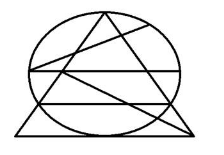Question
Which of the following sections of the Specific Relief
Act 1963, deals with cases where an injunction may be refused?Solution
S. 41 of the Specific Relief Act, 1963 provides for the cases where an injunction can be refused. S. 41. Injunction when refused.—An injunction cannot be granted— (a) to restrain any person from prosecuting a judicial proceeding pending at the institution of the suit in which the injunction is sought, unless such restraint is necessary to prevent a multiplicity of proceedings; (b) to restrain any person from instituting or prosecuting any proceeding in a court not sub-ordinate to that from which the injunction is sought; (c) to restrain any person from applying to any legislative body; (d) to restrain any person from instituting or prosecuting any proceeding in a criminal matter; (e) to prevent the breach of a contract the performance of which would not be specifically enforced; (f) to prevent, on the ground of nuisance, an act of which it is not reasonably clear that it will be a nuisance; (g) to prevent a continuing breach in which the plaintiff has acquiesced; (h) when equally efficacious relief can certainly be obtained by any other usual mode of proceeding except in case of breach of trust; (ha) if it would impede or delay the progress or completion of any infrastructure project or interfere with the continued provision of relevant facility related thereto or services being the subject matter of such project. (i) when the conduct of the plaintiff or his agents has been such as to disentitle him to be the assistance of the court; (j) when the plaintiff has no personal interest in the matter.
Statement : "The government has decided to build more highways to improve connectivity."
Assumptions :
I. Highways help in economic grow...
Seven persons (D, E, F, G, H, I, and J) have different number of chocolates. Only G has more chocolates than H. I has more chocolates than J and D. D ha...
In a class among five students, T has more marks than U and V, but V does not have least marks. W has more marks than X and X has more marks than T, who...
Naveen is ranked 26th from the top in his class. When counted from the bottom, he is ranked 44th. What is the total number of stud...
Find the number of triangles in the given figure:

Who among the following has more marks than H?
M is sixth form the left end and N is fourteen from the right end. O who is third to the right of M is sixth to the left of N. find the total number of ...
Seven persons, J, K, L, M, N, O and P are of different heights. L is taller than 4 persons. K is taller than N, who is taller than M and O. J is taller ...
If the difference between the weights of U and R is 23kg, then how many items are lighter than the item S?
Gaurav started walking 4 km straight from his school. Then he turned right and walked 2 km. Again he turned right and walked 2 km to reach his house. If...



